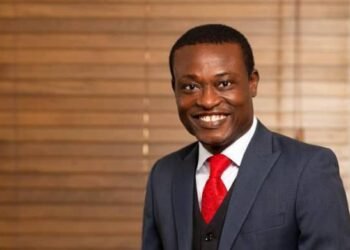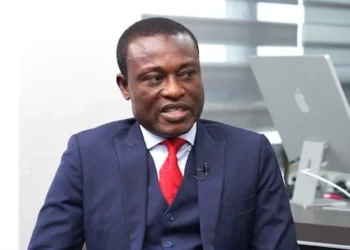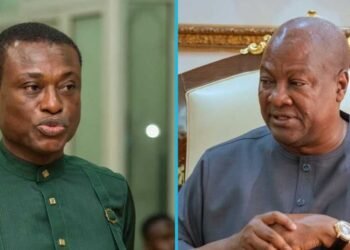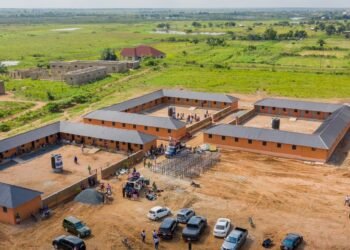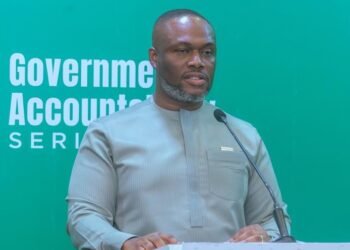The Ghana Anti-Corruption Coalition (GACC) in collaboration with some key state institutions including the Office of the Special Prosecutor and the Economic Organized Crime Office have embarked on a campaign to combat illicit campaign financing among political parties in the country.
The campaign, dubbed “SERIOUS AND ORGANIZED CRIME, A THREAT TO 2024 ELECTIONS” which is funded by the Foreign, Commonwealth and Development Office (FCDO) is also aimed at protecting state or public funds which are often misappropriated and misapplied by political leaders when they assume political offices to the detriment of the country’s development.
The Executive Secretary of the Ghana Anti-Corruption Coalition, Beauty Emefa Narteh, commenting on the danger of illicit campaign financing, bemoaned how election monetization mostly compelled some politicians to go to a large extent to take money from persons involved in organized crimes.
“Politicians are now put in the position to look for sponsors with free money to dispense? It’s usually people who are into these serious organized crimes or who have acquired illegitimate wealth, finding means to legitimize. They find ways to buy power for protection and influence “
Beauty Emefa Narteh
Furthermore, Beauty Emefa Narteh, while calling for public support towards the campaign against illicit financing among some members of the various political parties in the country, also called for an immediate review of the Political Parties Act particularly, its financing provisions to promote fairness and transparency.
She noted that any amendment to the financing provisions of the Political Parties Act must specifically state the sources of political parties’ funding and further provide mechanisms under which such funds are spent.
Drawing parallel comparisons on how the activities of political parties are financed in other countries, Madam Emefa Narteh stated that such funds are often considered public funds, and hence are often subject to public auditing.
The Executive Director of the Ghana Anti-Corruption Coalition, Beauty Emefa Narteh further called on the various political parties to take charge of the transportation expenses of its members during internal party elections.
She asserted that such a move would go a long way to prevent the situation where the majority of candidates competing in such elections pay huge some of money to delegates under the guise of giving transportation allowances.
EOCO Suspicions
Meanwhile, Samuel Ofori Sarpong, an investigator from the Economic and Organized Crime Office (EOCO) noted that his office has enough leads to suspect, highly linked criminal cells seeking influence, exploring the route of campaign funding.
He stated that the suspected criminal activities include narcotics, human trafficking, illegal mining, tax fraud, money laundering, visa racketeering, and transborder crimes.
Mr Sarpong expressed deep concern about the influence such criminal elements may have on politicians they fund during campaigns and further mentioned instances where investigators faced pressure or inquiries from powerful politicians when probing individuals or businesses linked to illicit activities.
“If I know that you are looking for money to fund your campaigns and I can fund fifty to sixty percent of your activities; in the event you come to power and I am in trouble, do you think I will not be able to influence you?”
Samuel Ofori Srpong
The investigator while expressing concerns over the issue of potential influence exerted by those funding political campaigns, suggested that such influence could compromise the integrity of elected officials.
OSP Collaboration
However, Samuel Appiah Darko, Director for strategy research and communications with the Office of the Special Prosecutor (OSP), emphasized the commitment of the office of the Special Prosecutor to address cases of vote buying in the country.
He mentioned the Office of the Special Prosecutor’s involvement in prosecuting a former Municipal Chief Executive (MCE) nominee for Juabeng, Alexander Kwabena Sarfo-Kantanka for allegedly engaging in voting buying ahead of his election.
Mr Drako also encouraged the general public to play an active role in providing information including reporting and providing evidence of corruption or organized crime that could lead to the successful prosecution of individuals engaged in vote buying.
He emphasized the protection of the identity of whistle-blowers and also stated that a reward of ten percent of proceeds is mostly given to persons who helped in the successful prosecution and conviction of reported crimes.
READ ALSO: Ablakwa Demands Clarifications Over Government GHS 80 Million Disbursement For Flood Victims




